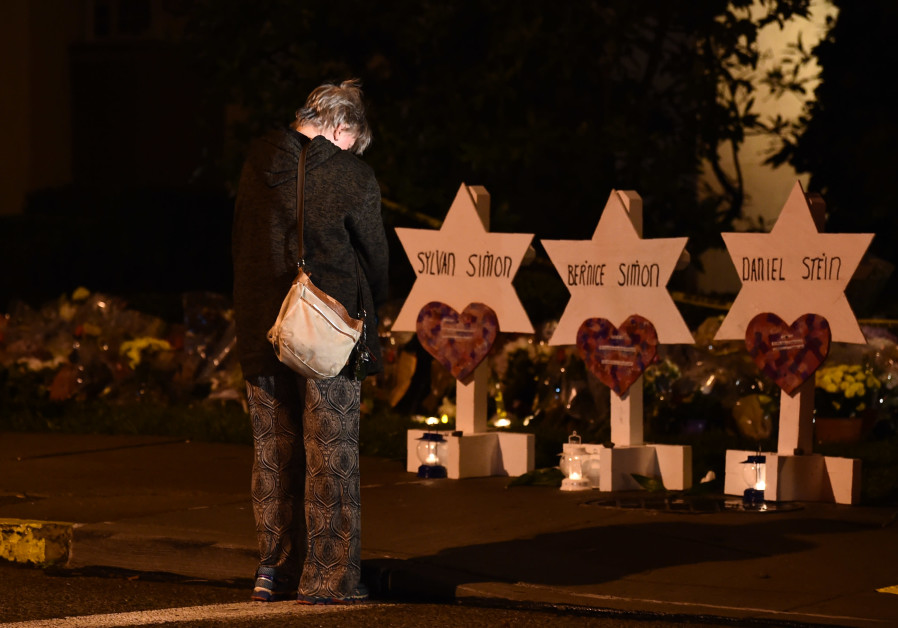Violent antisemitism on the rise worldwide

A woman bows her head in front of a memorial on October 28, 2018, at the Tree of Life synagogue after a shooting there left 11 people dead in the Squirrel Hill neighborhood of Pittsburgh on October 27. (photo credit: BRENDAN SMIALOWSKI / AFP)
Join Jerusalem Post Premium Plus now for just $5 and upgrade your experience with an ads-free website and exclusive content. Click here>>






Comments are closed.